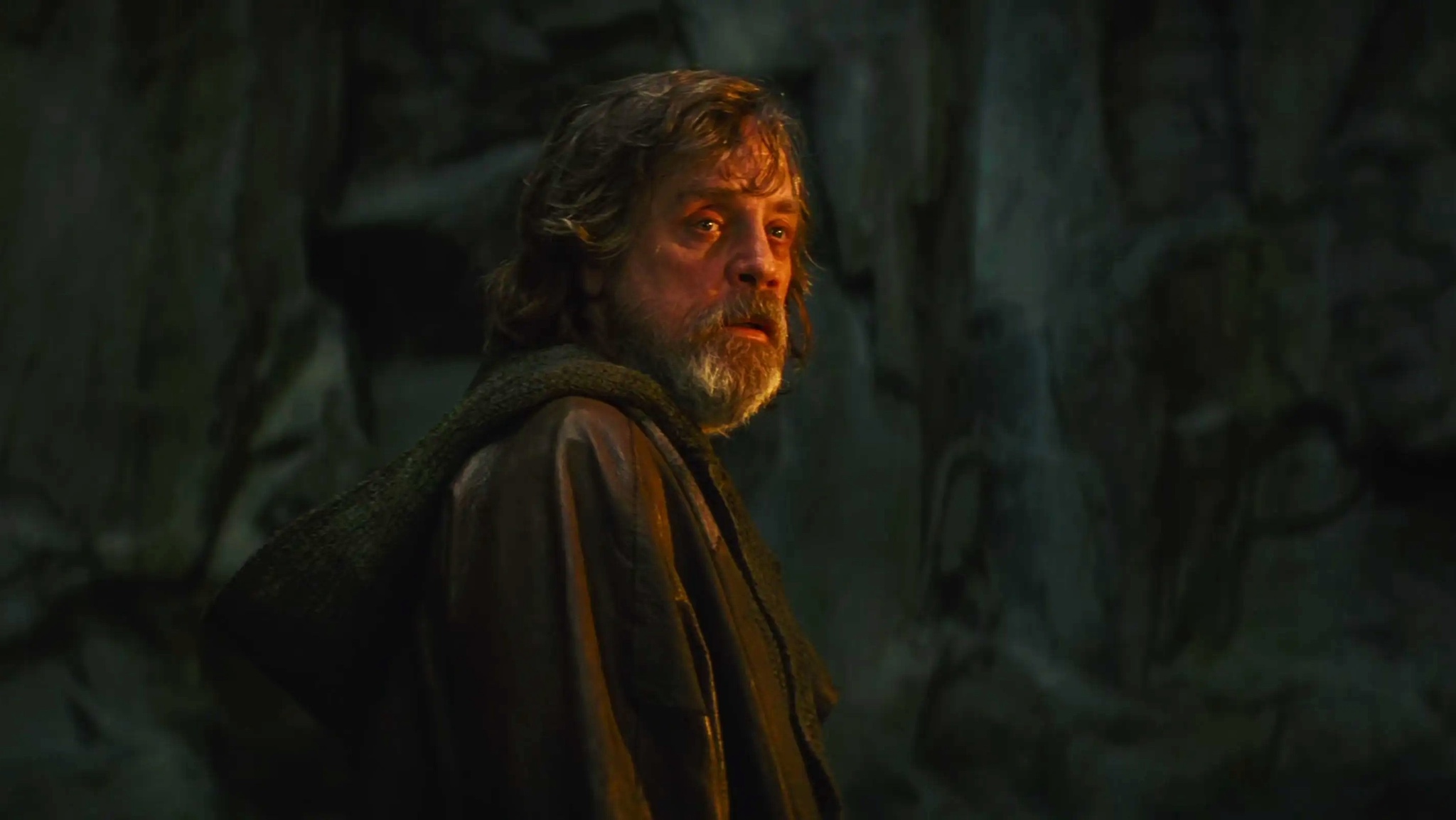
Mark Hamill, in a conversation on the “Bullseye with Jesse Thorn” podcast, shared his proposed darker backstory for Luke Skywalker in “Star Wars: The Last Jedi,” which was deemed too bleak for the series. During his discussion about making “The Last Jedi,” Hamill praised director Rian Johnson as one of his top collaborators, yet disagreed with Johnson’s rationale behind Luke’s seclusion on Ahch-To. Believing that Luke’s determination would be reinforced when faced with an ex-apprentice who embraced the dark side, Hamill suggested ideas for a backstory that didn’t end up in the final film.
In simpler terms, Hamill said, “I wondered why someone would abandon their devotion to something like a religious figure, in this case, a Jedi. It was love for a woman, which led Luke to give up being a Jedi. They had a child together. Tragically, when the child found an unattended lightsaber and pressed the button, they were killed instantly. The grief was so overwhelming that the mother took her own life. However, Rian Johnson didn’t have time to develop this backstory; instead, he provided a brief explanation.
In the aftermath of discovering Luke Skywalker secluded on Ahch-To at the end of Star Wars: The Force Awakens, The Last Jedi delves into the series of events that drove him there. Overwhelmed by the darkness rising within his nephew Ben Solo, Luke considered eliminating him to prevent the devastation he might bring as a pawn of Supreme Leader Snoke. However, before he could act on this fleeting impulse, Ben detected Luke’s intentions and retaliated by destroying his temple. Filled with regret for his inability to protect the galaxy, Luke retreats to Ahch-To, seeking solitude and accepting his fate as a fallen hero.
In my opinion, Johnson’s portrayal of Luke Skywalker in The Last Jedi remains one of the film’s most contentious points that continues to fuel discussions among fans today. While some viewers were dismayed by Luke’s decision to distance himself from his dearest friends during their hour of need, others saw a rich and thought-provoking narrative about a man grappling with spiritual turmoil and ultimately emerging as an icon who ignited the galaxy’s hope.
Star Wars often delves into somber themes, such as the instance where Anakin kills the younglings in Revenge of the Sith. Mark Hamill’s proposed backstory might have crossed an ethical boundary. Regardless of whether it was displayed on screen, a dialogue about a mother grieving her child who died accidentally by a lightsaber would have been deeply disturbing in a movie intended for family viewing. Although something tragic was necessary to drive Luke into exile, it didn’t need to be as grim as that idea.
Johnson’s ideas worked well for the story of “The Last Jedi,” and Ben Solo’s fall might justify Luke’s self-imposed exile. He wasn’t just letting down any ordinary student; he was betraying his nephew, the son of his closest friends who had put their faith in him. To say Luke felt shame, guilt, and despair at that moment is an understatement. It was a deeply personal failure that would have impacted anyone, even someone as powerful as Luke Skywalker. Moreover, Luke’s temple represented the second collapse of the Jedi Order, which might have made him question the role of Jedi in the galaxy. Some may find it strange that the same person who never gave up on Darth Vader was so quick to abandon Kylo Ren, but there are enough reasons for it to make sense. However, what Luke didn’t understand before meeting Rey is that failure can be a valuable lesson.
https://comicbook.com/movies/news/star-wars-sequel-trilogy-moments-disney-wants-to-forget/embed/#
Read More
- Survivor’s Colby Donaldson Admits He Almost Backed Out of Season 50
- Best Controller Settings for ARC Raiders
- Gold Rate Forecast
- Where Winds Meet: How To Defeat Shadow Puppeteer (Boss Guide)
- The Sci-Fi Thriller That Stephen King Called ‘Painful To Watch’ Just Joined Paramount+
- How to Build a Waterfall in Enshrouded
- Rod Stewart’s Albums Ranked: Every Release & Biggest Hits You Forgot About
- 10 Best Shoujo Manga Writers
- New PS4 Game Announced for 2027 (When the PS6 Is Supposed to Release)
- Hazbin Hotel season 3 release date speculation and latest news
2025-06-26 20:15